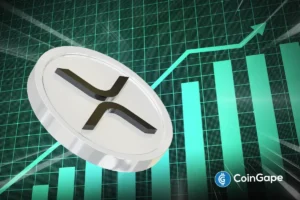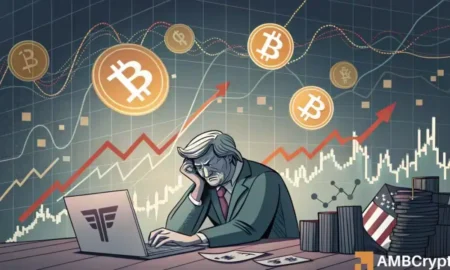Former President Donald Trump’s announcement of sweeping new tariffs on 3rd April sent shockwaves through the crypto market, triggering significant losses in U.S. crypto stocks and ETFs. Major players like Coinbase Global, MicroStrategy, MARA Holdings, and Riot Platforms all saw declines, reflecting investor unease. Despite the downturn, BlackRock’s IBIT managed to attract net inflows, showcasing the resilience of certain crypto assets in the face of market volatility.
The impact of Trump’s tariff announcement also rippled across U.S. spot bitcoin exchange-traded funds (ETFs), with significant outflows recorded on 3rd April. Grayscale’s GBTC led the outflows, followed by Bitwise BITB and Fidelity FBTC. However, BlackRock’s IBIT stood out with net inflows, highlighting its ability to weather the storm amid market uncertainties. Despite Bitcoin and Ethereum also experiencing price drops, the crypto market remains relatively resilient in the face of economic and political turbulence.
Marcin Kazmierczak, COO of blockchain firm RedStone, noted the increasing link between digital assets and macroeconomic policy changes, suggesting that protectionist policies could drive interest in decentralized alternatives in the long run. Crypto investment specialist David Hernandez from 21Shares highlighted the market’s hyper-democratic and borderless nature, allowing investors to hedge against macroeconomic uncertainties. Despite the turbulence, the crypto market continues to show signs of resilience amid ongoing global economic shifts and regulatory developments.
Overall, Trump’s tariff announcement had a significant impact on the crypto market, with U.S. crypto stocks and ETFs experiencing losses. However, BlackRock’s IBIT managed to attract net inflows, showcasing its resilience in the face of market volatility. The market also saw significant outflows in U.S. spot bitcoin ETFs, with some key players like Grayscale’s GBTC experiencing declines. Despite the downturn, Bitcoin and Ethereum also saw price drops, reflecting the broader unease in the market.
The community’s reaction to the market turmoil was mixed, with some seeing it as a sign of increasing link between digital assets and macroeconomic policy changes. Others, like crypto investment specialist David Hernandez, highlighted the market’s hyper-democratic and borderless nature as a strength in times of uncertainty. Despite the challenges, the crypto market is showing resilience and remains a viable option for investors looking to hedge against global economic shifts and regulatory developments.

















